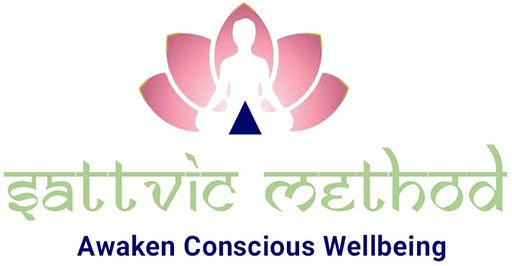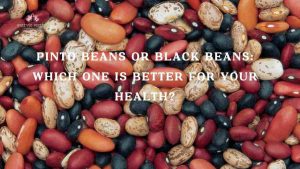Are you looking to boost your overall well being? Consider the power of a plant-based high protein diet. This nutritional approach has gained popularity in recent years for its numerous health benefits. Not only does it fuel your body with essential nutrients, but it also supports your mental clarity and focus.
By incorporating plant-based protein sources such as legumes, tofu, tempeh, and quinoa into your meals, you can ensure you are getting an adequate protein intake while avoiding the negative impacts of animal-based proteins. Research has shown that plant-based diets can lower the risk of chronic diseases, promote weight loss, and improve digestion.
Moreover, a plant-based high protein diet is not only beneficial for personal health but also for the environment. Animal agriculture is a major contributor to greenhouse gas emissions and deforestation, but by switching to plant-based proteins, you can significantly reduce your carbon footprint.
So, if you’re ready to fuel your body and mind for conscious well being, a plant-based high protein diet may be the answer. Embrace the benefits of this sustainable and nutritious lifestyle choice and experience the positive impact it can have on your overall health and the world around you.
Understanding the plant-based high protein diet
A plant-based high protein diet centers around the consumption of natural foods derived from plants while ensuring a significant intake of protein. This dietary approach emphasizes whole foods such as legumes, nuts, seeds, grains, and vegetables that are rich in protein content. Unlike traditional diets that rely heavily on animal products, a plant-based diet seeks to harness the power of nature by focusing on diverse options that can fulfill protein requirements without the associated health risks of animal proteins.
The essence of a plant-based high protein diet lies in its ability to provide essential amino acids that the body cannot synthesize on its own. While it may be a common misconception that one must consume meat to obtain sufficient protein, there are numerous plant sources that deliver these vital nutrients. By incorporating a variety of these foods into daily meals, individuals can ensure a balanced intake of protein and other essential nutrients, contributing to overall health and well being.
Moreover, plant-based protein approach is increasingly recognized for its sustainability. As the world grapples with climate change and environmental degradation, shifting towards a plant-based high protein diet can significantly reduce one’s carbon footprint. With the agricultural sector being a leading contributor to greenhouse gas emissions, embracing plant-based proteins presents a viable solution for those looking to make conscious choices for the planet while nourishing their bodies.
The benefits of a plant-based high protein diet
Adopting a plant-based high protein diet comes with an array of health benefits that extend beyond mere nutrition. One of the most notable advantages is the reduced risk of chronic diseases. Research has shown that individuals who follow plant-based diets tend to have lower incidences of heart disease, diabetes, and certain types of cancer. This protective effect is largely attributed to the high levels of antioxidants, vitamins, and minerals found in plant foods, which work synergistically to enhance the body’s immune response and overall health.
Additionally, a plant-based high protein diet can aid in weight management. Many plant-based protein sources are low in saturated fats and calories, making them an ideal choice for those looking to maintain or lose weight. Foods such as lentils, chickpeas, and quinoa are not only filling but also provide essential nutrients that support metabolic health. The fiber content found in these foods promotes satiety, reducing the likelihood of overeating and contributing to healthier body composition.
Mental wellbeing is another significant benefit of a plant-based high protein diet. Studies suggest that diets rich in plant-based proteins can improve mood, reduce anxiety, and enhance cognitive function. This is likely due to the abundance of vitamins and minerals, such as magnesium and B vitamins, which are essential for brain health. By fueling the body with nutrient-dense plant foods, individuals may experience better focus, increased energy levels, and an overall sense of vitality.
Plant-based high protein sources
There is a rich variety of plant-based high protein sources that can easily be integrated into meals and snacks. Legumes, such as lentils, chickpeas, and black beans, are among the top contenders, boasting impressive protein content while also providing essential fiber. These versatile ingredients can be used in soups, stews, salads, and even as a base for veggie burgers, making them a staple for anyone pursuing a plant-based lifestyle.
Nuts and seeds are another excellent source of plant-based protein. Almonds, chia seeds, flaxseeds, and hemp seeds not only offer a significant protein boost but also healthy fats that are beneficial for heart health. Incorporating these into smoothies, oatmeal, or as toppings for salads can enhance both the nutritional value and flavor of meals. Moreover, nut butters, such as peanut or almond butter, provide a quick and tasty way to increase protein intake while enjoying a delicious snack.
Whole grains also play a crucial role in a plant-based high protein diet. Quinoa, for example, is a complete protein, meaning it contains all nine essential amino acids. Other grains like brown rice, farro, and barley contribute to protein intake and can serve as a hearty base for various dishes. By combining different protein sources throughout the day, individuals can ensure they meet their protein needs effectively while enjoying a diverse and satisfying diet.
The role of protein in the body
Protein serves as one of the body’s fundamental building blocks, playing a crucial role in the growth, repair, and maintenance of tissues. It is an essential macronutrient that is necessary for the production of enzymes, hormones, and other vital bodily substances. The body relies on protein for muscle development, immune function, and the synthesis of neurotransmitters, which are critical for proper brain function and mood regulation.
Moreover, proteins are made up of amino acids, which are categorized into essential and non-essential amino acids. Essential amino acids must be obtained through diet, as the body cannot produce them on its own. Conversely, non-essential amino acids can be synthesized by the body. Consuming a variety of plant-based protein sources ensures that individuals receive all the necessary amino acids to support optimal health.
In addition to its functional roles, protein also contributes to satiety, helping individuals feel full and satisfied after meals. This can be particularly beneficial for those looking to manage their weight, as higher protein intake is associated with reduced appetite and caloric intake. By prioritizing protein-rich foods, individuals can maintain energy levels throughout the day while reducing the likelihood of unhealthy snacking and overeating.
The impact of a plant-based high protein diet on physical health
The physical health benefits of a plant-based high protein diet are profound and multifaceted. One of the most significant impacts is the potential for improved cardiovascular health. Numerous studies have linked plant-based diets to lower blood pressure, reduced cholesterol levels, and a decreased risk of heart disease. The high fiber content found in plant foods helps to eliminate excess cholesterol from the body, while the abundance of antioxidants contributes to improved endothelial function, leading to better circulation and heart health.
Another area where a plant-based high protein diet shines is in digestive health. Plant-based foods are rich in dietary fiber, which is vital for a healthy digestive system. Fiber aids in regular bowel movements, prevents constipation, and promotes a healthy gut microbiome. A well-functioning digestive system is essential for nutrient absorption, which further supports overall well being. By incorporating a variety of legumes, whole grains, fruits, and vegetables, individuals can enhance their digestive health while enjoying the benefits of a high protein intake.
Weight loss and management are also notable benefits of a plant-based high protein diet. By focusing on plant-based proteins that are low in calories and high in nutrients, individuals can create a caloric deficit conducive to weight loss without sacrificing essential nutrients. The combination of high protein and fiber content in these foods promotes feelings of fullness, making it easier to adhere to a healthy eating plan. This aspect of a plant-based diet not only supports weight management but also contributes to improved metabolic health and a lower risk of obesity-related diseases.
The impact of a plant-based high protein diet on mental health
The influence of diet on mental health has become an area of increasing research interest, and a plant-based high protein diet has shown promising effects in this domain. One of the key factors is the presence of nutrients that support brain function, such as omega-3 fatty acids, B vitamins, and antioxidants. These nutrients are abundant in plant-based foods and are essential for maintaining cognitive health, improving mood, and reducing symptoms of anxiety and depression.
Studies suggest that diets rich in whole, plant-based foods can enhance brain function and promote mental clarity. The antioxidants found in fruits and vegetables help to combat oxidative stress, which can contribute to cognitive decline. Furthermore, the anti-inflammatory properties of many plant foods may protect brain health and reduce the risk of neurodegenerative diseases. By choosing a diet high in plant-based proteins, individuals may experience improved mental performance and emotional stability.
Another important aspect of mental health is the gut-brain connection. The gut microbiome plays a crucial role in regulating mood and mental health, and a diet high in fiber from plant-based sources fosters a healthy gut microbiome. The fermentation of fiber in the gut produces short-chain fatty acids, which have been shown to have positive effects on brain health and mood regulation. By nourishing the gut with plant-based proteins and fibers, individuals can support both their physical and mental well being.
Tips for incorporating a plant-based high protein diet into your lifestyle
Transitioning to a plant-based high protein diet can be exciting and rewarding, but it may require some adjustments. One effective tip is to gradually replace animal-based proteins with plant-based options. Start by incorporating legumes, such as beans and lentils, into your meals. Consider making a hearty bean chili or adding chickpeas to salads and grain bowls. This not only boosts protein intake but also diversifies your meals with new flavors and textures.
Meal planning can also be a game-changer in successfully adopting a plant-based high protein diet. By planning your meals ahead of time, you can ensure that you include a variety of protein-rich plant foods throughout the week. Prepare a shopping list that includes items such as quinoa, tofu, tempeh, and a range of vegetables. Having these ingredients on hand makes it easier to whip up nutritious meals and reduces the temptation to revert to less healthy options.
Experimenting with different cooking methods and recipes can keep your meals interesting and enjoyable. Try grilling, roasting, or stir-frying your protein sources to enhance their flavors. Explore international cuisines that emphasize plant-based ingredients, such as Indian dal, Mediterranean hummus, or Asian tofu stir-fries. The more creative you are in the kitchen, the more likely you will stick to your plant-based high protein lifestyle.
Plant-based high protein diet recipes and meal ideas
There are countless delicious and satisfying recipes to explore when embracing a plant-based high protein diet. For breakfast, consider a hearty smoothie bowl made with spinach, banana, plant-based protein powder, and topped with chia seeds, nuts, and berries. This nutrient-packed meal not only provides a solid protein boost but also energizes you for the day ahead.
For lunch, a quinoa salad with black beans, corn, diced bell peppers, and a zesty lime dressing makes for a refreshing and filling option. The combination of quinoa and black beans offers a complete protein source, while the colorful vegetables add essential vitamins and antioxidants. Pairing it with avocado can further enhance the healthy fats in the meal.
For dinner, try a stir-fry featuring tofu or tempeh as the protein source. Combine these ingredients with a variety of colorful vegetables such as broccoli, bell peppers, and snap peas, seasoned with soy sauce, ginger, and garlic. Serve it over brown rice or quinoa for a complete meal that is not only high in protein but also incredibly satisfying.
Common misconceptions about plant-based diets and protein
Despite the growing popularity of plant-based diets, several misconceptions persist regarding protein intake and nutritional adequacy. One of the most common myths is that plant-based proteins are inferior to animal-based proteins. While it’s true that some plant proteins may lack one or more essential amino acids, this can easily be addressed by consuming a variety of protein sources throughout the day. Foods like quinoa, soy, and buckwheat are complete proteins, while combining different sources, such as beans and rice, ensures a balanced amino acid profile.
Another misconception is that plant-based diets are not suitable for athletes or those with high protein needs. In reality, many professional athletes thrive on plant-based diets, demonstrating that it is entirely possible to meet increased protein requirements through carefully selected plant foods. Legumes, nuts, seeds, and whole grains can provide ample protein for muscle repair and growth, debunking the myth that animal products are necessary for athletic performance.
Lastly, some individuals believe that a plant-based high protein diet is bland or lacks variety. On the contrary, this dietary approach opens the door to an exciting array of flavors and cuisines. With countless plant-based ingredients and cooking techniques available, meals can be both delicious and diverse. By experimenting with new recipes and incorporating a wide range of fruits, vegetables, grains, and legumes, one can enjoy a vibrant and satisfying diet.
Embracing a plant-based high protein diet for overall well being
In conclusion, embracing a plant-based high protein diet offers a multitude of benefits for both physical and mental health. From reducing the risk of chronic diseases to enhancing cognitive function, this dietary approach provides a comprehensive solution for those seeking to improve their overall well being. The diverse array of plant-based protein sources ensures that individuals can meet their nutritional needs while enjoying delicious and varied meals.
As more people become aware of the positive impacts of plant-based diets on personal health and the environment, the shift towards more sustainable eating habits is gaining momentum. By choosing plant-based proteins, you not only nurture your body but also contribute to a healthier planet.
With the right knowledge, planning, and creativity, adopting a plant-based high protein diet can be a fulfilling and enjoyable journey. It’s time to fuel your body and mind with the power of plant-based nutrition and embrace a lifestyle that promotes conscious wellbeing for yourself and the world around you.
High Protein Sattvic Recipes for Health and Wellness: Elevate Your Mind, Body, and Soul
Unlock the power of wholesome, plant-based nutrition with High Protein Sattvic Recipes for Health and Wellness, a beautifully curated collection of 35 nourishing recipes. This cookbook is your gateway to a healthier, more vibrant lifestyle, perfectly balancing high-protein ingredients with the principles of Sattvic living.
From energizing breakfasts to hearty main courses, each recipe is crafted to fuel your body with clean, plant-based proteins while keeping your mind calm and centered. These recipes are:
- 100% Plant-Based: No animal products, just pure goodness.
- Gluten-Free: Designed to suit your dietary needs effortlessly.
- Quick and Easy: Perfect for busy professionals, families, or anyone seeking simplicity in the kitchen.
Discover dishes like creamy lentil stews, sprouted bean salads, protein-packed quinoa bowls, and delightful seed-based snacks that align with the Sattvic philosophy of non-violence, clarity, and harmony. Each bite supports your journey toward health, wellness, and spiritual balance.
Whether you’re looking to fuel your workouts, maintain a healthy weight, or simply embrace a more mindful way of eating, High Protein Sattvic Recipes for Health and Wellness is your ultimate guide. Bring joy to your kitchen and peace to your plate—one recipe at a time.
Order your copy today and embark on a delicious journey of vitality and wellness!









